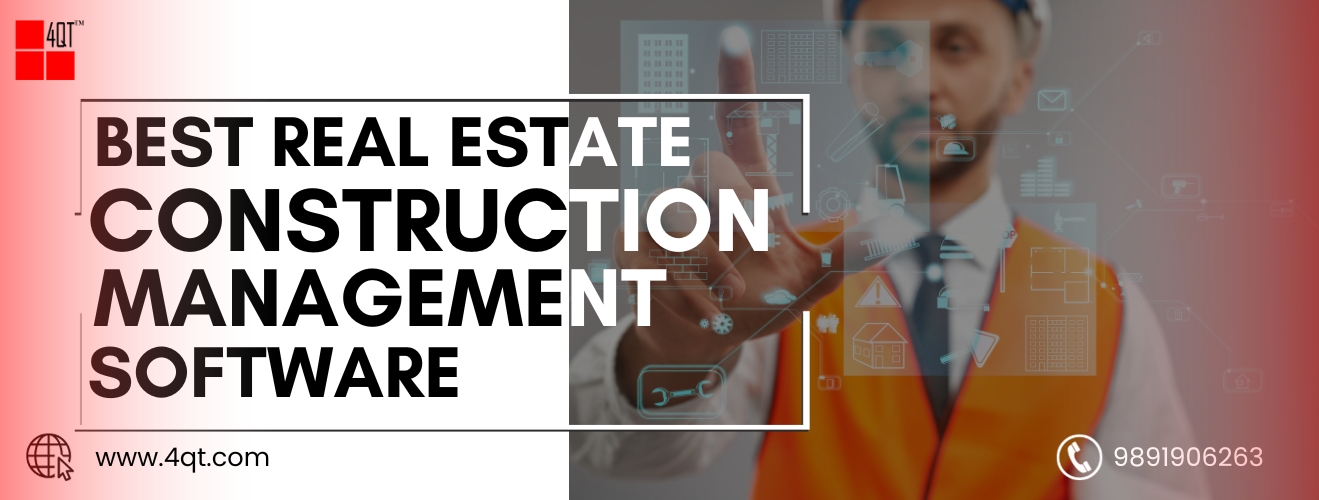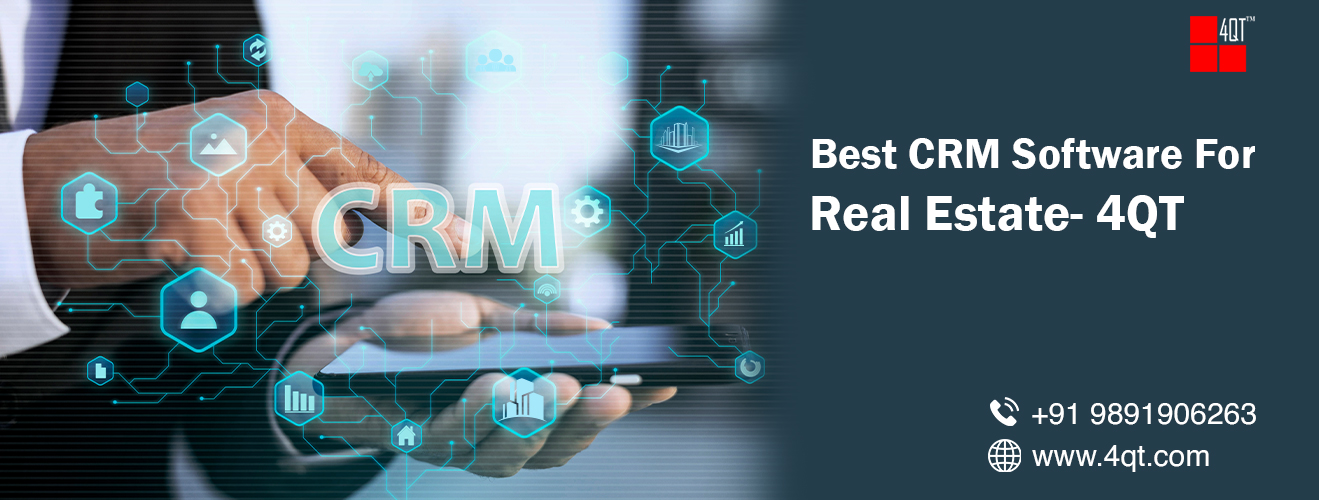Table of Contents
In the fast-evolving world of real estate development, staying ahead of the competition requires seamless organization, efficient communication, and strategic decision-making. This is where Customer Relationship Management (CRM) software steps in to revolutionize the way developers manage their projects. In this comprehensive guide, we will delve into the realm of CRM for real estate developer, exploring its significance, the top provider in the market-4QT, and why real estate agents find it to be the most desirable option.
What is CRM for Real Estate Developers?
CRM for real estate developer is a specialized software solution designed to streamline and optimize the various processes involved in real estate development. It serves as a centralized hub for managing customer interactions, project data, and communication channels. The primary goal is to enhance efficiency, foster collaboration, and ultimately boost profitability for real estate developers.
This software is equipped with features tailored to the unique needs of the real estate industry. From lead management and client communication to project tracking and analytics, robust CRM software for real estate developers can significantly improve the overall workflow. It acts as a virtual assistant, allowing developers to focus on their core competencies while the software handles the intricacies of customer relationships and project management.
How is Top Real Estate CRM Important for Developers?
Enhanced Customer Relationships:
Top Real Estate CRM enables developers to build and maintain strong relationships with their clients. It centralizes all customer information, interactions, and preferences, providing a holistic view of each client’s journey. This allows developers to offer personalized services, understand client needs, and ultimately build trust, leading to increased customer satisfaction and loyalty.
Efficient Project Management:
Software for real estate developers streamlines project management by consolidating all project-related data in one place. From initial planning to execution and post-sales support, developers can efficiently manage timelines, allocate resources, and track project progress. This leads to improved project efficiency and timely delivery, crucial factors in the competitive real estate market.
Seamless Communication:
Effective communication is vital in real estate development, involving various stakeholders such as clients, architects, contractors, and regulatory authorities. ERP for real estate developers acts as a communication hub, facilitating seamless collaboration and information exchange. This ensures that all team members are on the same page, reducing misunderstandings and delays.
Lead Management:
Top Real Estate CRM systems help developers manage leads efficiently, from initial contact to conversion. Automated lead nurturing processes can be implemented, ensuring that no potential opportunity falls through the cracks. This proactive approach to lead management increases the chances of converting prospects into clients, contributing to the overall success of the real estate development business.
4QT – The Top Provider of Software for Real Estate Developers
4QT emerges as a frontrunner in the realm of CRM for real estate developer. With a commitment to innovation and excellence, we provide a comprehensive solution that caters specifically to the unique needs of the ERP for real estate developers.
Tailored Features CRM for Real Estate Developer:
Our Top Real Estate CRM software is meticulously crafted with features tailored to the intricacies of real estate development. From land acquisition and project planning to sales and post-sales services, the software covers the entire project lifecycle. This ensures that developers have a tool that aligns perfectly with their workflow, allowing for maximum efficiency and productivity.
User-Friendly Interface:
Recognizing the diverse skill sets within the real estate industry, we have prioritized user-friendliness in its CRM for real estate developer software. The intuitive interface makes it easy for developers and their teams to adapt quickly to the system, minimizing the learning curve and maximizing the benefits of the software from the get-go.
Advanced Analytics and Reporting:
We empower real estate developers with robust analytics and reporting tools. These features provide valuable insights into project performance, client behavior, and market trends. By leveraging data-driven decision-making, developers can refine their strategies, identify areas for improvement, and make informed choices that contribute to the success of their projects.
Scalability and Customization:
Understanding that the real estate industry is dynamic and diverse, our software for real estate developers is designed to be scalable and customizable. Whether a developer is handling a small-scale residential project or a large-scale commercial development, the software adapts to the specific needs and scale of the business. This flexibility ensures that our CRM solution grows with the developer’s business, supporting expansion and evolution.
Why Choose Us for CRM for Real Estate Developers?
Industry Expertise:
We offer an abundance of industry knowledge. The team behind the software understands the challenges and nuances of real estate development, allowing us to create a solution that truly addresses the unique requirements of the industry. This industry-specific knowledge sets us apart as a trusted partner for ERP for real estate developers.
Proven Track Record:
Our top real estate CRM has established a proven track record of success, with numerous real estate developers benefiting from our CRM solutions. Testimonials and case studies highlight the positive impact of our software on project timelines, customer satisfaction, and overall business profitability. This track record instills confidence in developers seeking a reliable and effective CRM for real estate for developer.
Continuous Innovation:
In the dynamic world of real estate, staying ahead requires continuous innovation. 4QT is committed to staying at the forefront of technological advancements, ensuring that our CRM software evolves alongside industry trends. Regular updates and new features keep developers equipped with the latest tools and capabilities, positioning them for sustained success.
Dedicated Support:
Understanding that effective customer support is crucial for the successful implementation and utilization of CRM software, we offer dedicated support services. From onboarding and training to troubleshooting and ongoing assistance, developers can rely on 4QT’s support team to ensure a smooth and efficient experience with the software for real estate developers.
Conclusion
To sum up, CRM for Real Estate developer is not just a tool but a strategic asset that can transform the way real estate projects are managed and executed. With 4QT emerging as a top provider of CRM solutions tailored for the real estate industry, developers have the opportunity to leverage cutting-edge technology to enhance customer relationships, streamline project management, and achieve unprecedented levels of success.
By choosing us, real estate developers align themselves with a partner that understands their unique challenges and provides a comprehensive solution to address them. As the industry continues to evolve, having reliable and innovative software for real estate developers becomes not only an advantage but a necessity for those looking to thrive in the competitive landscape of real estate development.




